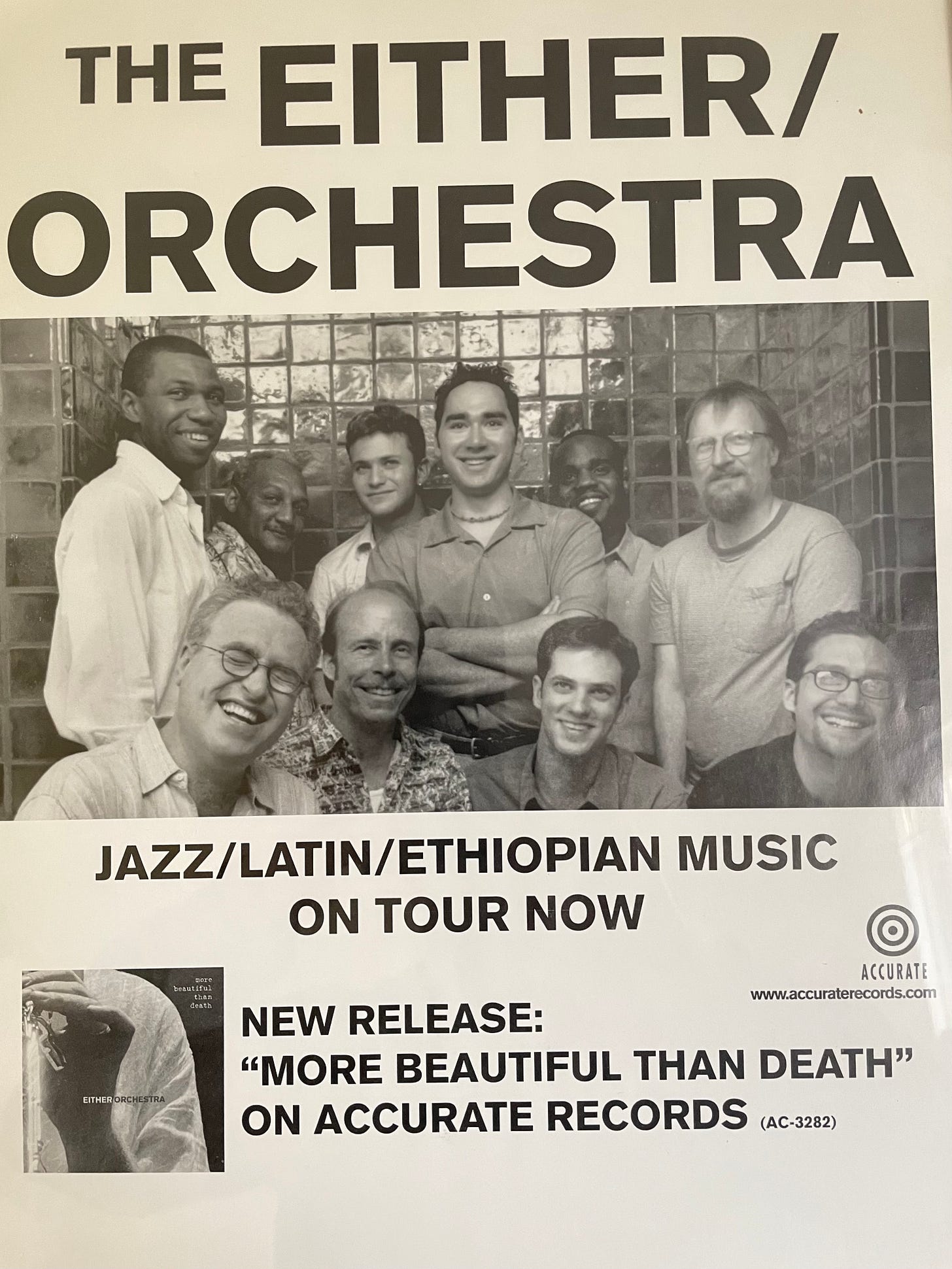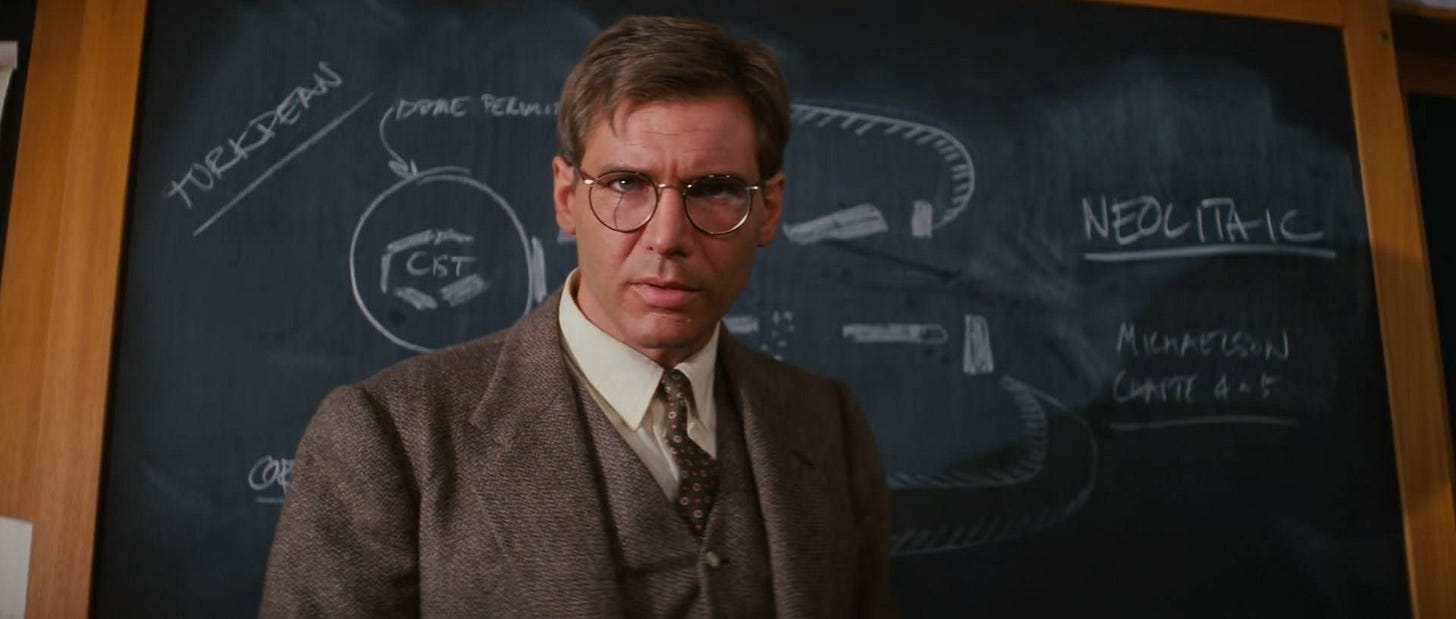Welcome (back) to The Collective Edge (formerly The Fishbowl)
An introduction for new readers and a referesher for the veterans
[Update - April 15, 2025: The Fishbowl is changing names to The Collective Edge. Check out Issue 12 for the reasons behind this.]

[If you are a long-time reader of The Fishbowl The Collective Edge, you may not find much new information here. This post is mostly an introduction for new readers. I’ll be publishing twice-monthly going forward, so more new content is coming soon!]
In the past six months, The Fishbowl The Collective Edge has grown from a melon-sized bowl on the kitchen table to…a larger melon-sized bowl. Maybe a canteloupe to a watermelon?
But there are changes a-comin’. My book is coming out in a mere [checks watch] nine months [Edit: September 2nd 2025 in the US; August 28 in the UK]. And here in the first trimester of publicity gestation, I’m seeing an influx of new readers, many of whom may be unfamiliar with me and what this newsletter is about.
At first, I didn’t know what this newsletter was about either. I’m a trial-and-error learner - one of my favorite quotes is Peter Skillman’s “Enlightened trial-and-error succeeds over the planning of the lone genius.” For the first time in my life, I’ve been putting writing out into the universe almost daily. That’s a big change from the funeral dirge tempo of academic publishing.
I’ve found the change really gratifying. I can make jokes! Write in sentence fragments. And so many people have been telling me they found what I wrote helpful. More and more are subscribing - yesterday, we crossed a round number ending in -00 between 100 and 1000 (I’ll tell you when we hit 1000). But I suspect many didn’t know what they were signing up for.
So here we go.
What the heck is this?
This is The Fishbowl, a community for curious people to learn how organizational science can help us live and work better together. And have a little fun along the way.
Humans thrive and survive in groups. Living and working together isn’t easy, though. Much of the advice on living and working better is individualistic. Although what’s going on between your ears is a start, the real secrets lie in how we get the most from our groups, teams, and organizations.
At The Fishbowl, you’ll get twice-monthly newsletters that help you understand and shape the moments of creativity and collaboration in your life. You’ll also learn more about how to become a discerning user of social science research, the writing process, and the non-stop action of academic careers.
Who are you again?
I’m Colin Fisher! By day, I’m an associate professor of Organisations & Innovations at University College London (UCL) School of Management, as well as the PhD Programme Director. The titles also apply at night, I’m told.
I’m from Redmond, Washington (USA), a suburb of Seattle now best-known for Microsoft’s headquarters. I did not like it there very much, so I left.
To my parents’ disappointment, I followed my passion and studied jazz trumpet at New England Conservatory of Music in Boston. As my mom put it, “You’re wasting your big brain!” Little did she know.
For the next decade or so, I had a perfectly-fine-but-unspectacular career as a jazz trumpet player. Many of the highlights were with Either/Orchestra, with whom I got to play all over the world with amazing musicians. Evidence is still on Spotify and scattered around the interwebs.

But most of the job was playing unrehearsed music at strangers’ weddings and trying to teach trumpet to kids too young to actually play the trumpet.
Pro-tip for parents: Don’t start brass instruments until around 11 years old. Most younger kids don’t have the muscalature to play with proper technique and develop bad habits to compensate.
I think you got sidetracked. What does playing jazz have to do with a newsletter about organizational science?
I’m getting to that! Anyway, I did what many Boston-based jazz graduates do - moved to New York City. I was trying to “make it” in the Big Apple, but hedged my bets by getting a Masters’ degree.
As I wrote back in Issue 1:
I went on a vision quest at NYU’s Gallatin School: a Master’s degree in Interdisciplinary Studies. I studied improvising groups of all kinds - jazz, other musical genres and even different art forms, like dance, theater, comedy.
To my everlasting good fortune, my haphazard thesis research also led me to “The Social Psychology of Creativity: A Componential Conceptualization,” by Teresa Amabile. I looked her up and found she was in some field I’d never heard of—organizational behavior.
Organizational behavior is an odd melange of social psychology, sociology, and business devoted to understanding how people suffer, tolerate, and occassionally thrive within organized social structures like companies, professions, or teams. Or, as Adam Grant described it, organizational behavior is the science of “how to make work suck less.”
…
It’s been twenty years since Teresa (and Richard Hackman) took the inexplicable risk to accept me, a musician with no background in social science, as a PhD student. I owe both of them so much. And I’ll tell you more in later issues.
In those twenty years, I’ve been researching and teaching about creativity, improvisation, and group dynamics. I think these topics cover two of the great challenges we face as humans. First, we need to live with other humans, who, unfortunately, kind of suck sometimes (group dynamics) Second, we need to adjust to an ever-changing world because of those pesky other humans and such (creativity, improvisation). As Charles Darwin didn’t actually say, “In the long history of humankind, those who learned to collaborate and improvise most effectively have prevailed.”
So, that’s how I became a business school professor writing this newsletter.
Those seem like thin qualifications.
Ok, sure. But a lot happened since then. Here are the highlights:
Colin received his Ph.D. in Organizational Behavior from Harvard University, and previously worked as an Assistant Professor of Organizational Behavior at Boston University’s School of Management.
Colin’s academic research has uncovered the hidden processes of helping groups and teams in situations requiring creativity, improvisation, and complex decision-making. He is the author of the forthcoming book The Collective Edge: Unlocking the Secret Power of Groups, published by Avery/Penguin Random House (USA) and Simon & Schuster (UK), and translated into seven languages.
He has written about group dynamics for both popular science and management audiences, such as his work in The Conversation UK , Harvard Business Review, and many other outlets, and his work has been profiled in prominent media outlets such as BBC, Forbes, NPR, and The Times. He has also provided lectures and workshops to organizations around the world hoping to improve their creativity and collaboration.
His discoveries have also been published in leading scholarly journals, including Academy of Management Annals, Academy of Management Discoveries, Academy of Management Journal, Academy of Management Perspectives, Academy of Management Review, Journal of Applied Psychology, Negotiation Journal, Organizational Behavior and Human Decision Processes, Organizational Dynamics, Organization Science, and Small Group Research, as well as in numerous book chapters and periodicals.
This has been a very long introduction. Are you done yet?
Not quite! As you may have surmised, I now live in London and can now claim to be British-American. I’m married to mezzo-soprano Carola Emrich-Fisher, who should get about 63.5% of the credit for my professional accomplishments, including as the Official Editor of The Fishbowl. We have two wonderful children - Kaya (19) and Miles (16).
I’m sold! What should I do?
It sounds cliche, but that’s because it really helps: Like, subscribe, comment, share.
All snark aside: it feels good when people tell me they read what I wrote and got something out of it. I’m learning with every scrap of public writing where the overlap is between “stuff I want to write about” and “stuff people want to read about.” Although likes and shares are an imperfect measure, they beat waiting years for citations in academic articles.
So jump in The Fishbowl - I promise the water is clean and the proper temperature for tropical fish. Check out past issues. New and improved ones are coming.
If you do want to help me, please let me know in the comments what you’d like to see more of in the reboot of The Fishbowl. What questions do you want to see addressed?








What a delightful and engaging read! I can't wait to swim, float, and drift around the bowl more.
Thank you for sharing such an amusing welcome post! I was very encouraged by your eclectic background, from jazz musician to the Master’s degree in Interdisciplinary Studies, and everything that followed after Teresa Amabile took you in for research. You are an inspiring model, and your attitude feels very genuine through the text and decisions that made your life path :)
As someone with a kindred artistic eye who got into an interdisciplinary master's programme and is just making her first steps into research, I found it very reassuring. Best for your 2025, and looking forward what you make out of it!